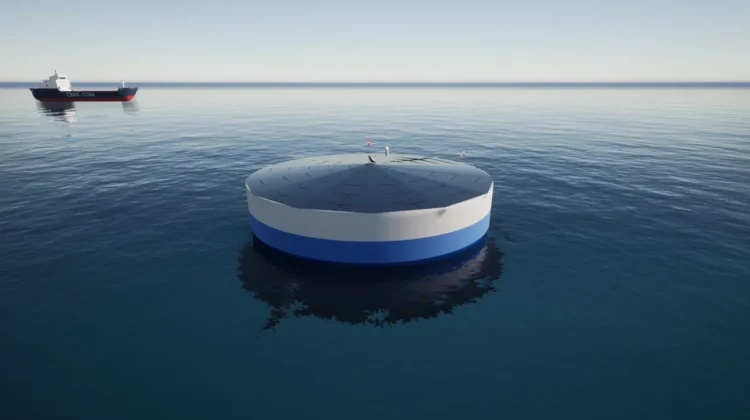
Construction is underway on an innovative floating structure designed to generate power from warm seawater, a process known as ocean thermal energy conversion (OTEC). Developed under the EU-funded project PLOTEC, the platform is expected to be installed in the upcoming months in a testing site in the Canary Islands, Spain.
OTEC is a renewable energy technology that uses warm surface seawater to vaporise a working fluid that then drives a turbine to generate electricity. Cold deeper water is then used to condense the working fluid and the cycle is repeated.
OTEC harnesses the power of the tropical ocean to provide a continuous, cost-effective supply of clean energy, with significant environmental advantages over fossil fuels and nuclear power. As the surface seawater in tropical areas remains warm throughout the day and night, and year-round, OTEC can generate electricity 24/7. By combining it with a storm-resistant structure, the technology becomes the potential permanent solution to power outages in tropical islands.
The prototype structure consists of three main parts: a cylindrical hull, a cold-water riser pipe and a gimbal connection point. The cold-water riser pipe is being fabricated in Austria by plastics company AGRU and the cylindric hull, the largest element of the installation, is under construction at Hidramar Shipyard, in Gran Canaria, with delivery scheduled for June.
Once the fabrication phase is concluded, the 1:5 prototype will be assembled and installed in the Oceanic Platform of the Canary Islands (PLOCAN), about three kilometres from the coast. The platform will be subjected to whatever conditions the Atlantic Ocean throws at it for about 12 months.
Computer simulations and a scaled tank test carried out in London last year confirmed the basic functionality of the OTEC structure. The project’s findings are expected contribute to marine engineering design and novel materials, as well as computational modelling, improving the accessibility of OTEC technology and the design and materials available to other offshore floating energy and marine devices.
Connecting seven companies across Europe, the PLOTEC project aims to develop technologies that can contribute to the renewable energy transition in small island developing states, which are vulnerable to severe weather conditions. Typically powered by old diesel generators, these countries lack clean alternatives for electricity generation.
As well as being designed to weather tropical storms, the full-scale structure will also be configured in such a way that it can be disconnected and moved to a safe harbour in conditions considered to be particularly extreme. ‘This prototype will provide us with the perfect opportunity to test our cylindrical hull and gimbal solutions in 20-metre-equivalent waves and hone our offshore connection and disconnection procedure, allowing us to maximise asset lifetime and availability even in storm-prone regions,’ said Sam Johnston, lead engineer at Global OTEC, one of the project partners.


